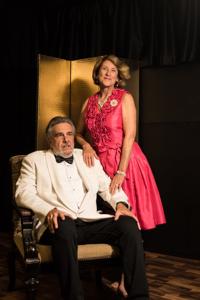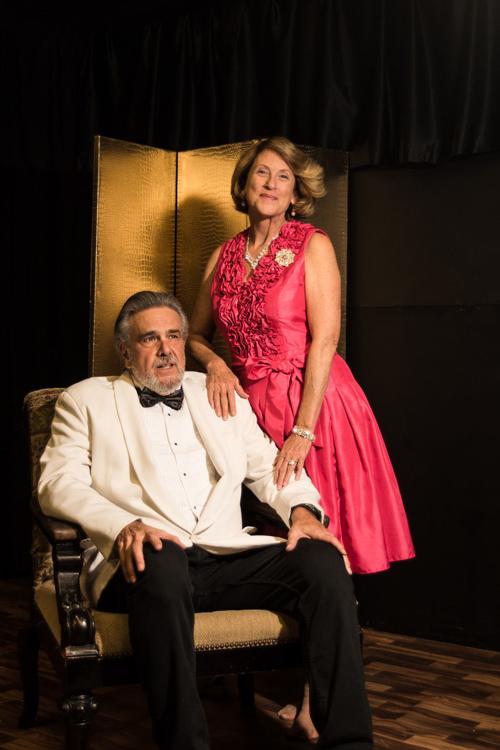Sex. Lies. Death. Life. Greed. Desperation. And, oh yes, alcohol.
They all crash into each other and make for an explosive cocktail in Tennessee Williams’ “Cat on a Hot Tin Roof,” now getting a solid production at Tucson’s Roadrunner Theatre Company.
The play is a microscopic look at a family that truly defines “dysfunctional.”
Roger Owen takes on the role of the patriarch, Big Daddy, who has the family gathered at his Mississippi cotton plantation to celebrate his 65th birthday. Big Daddy is rich, a bully, a cad and so verbally abusive that it is cringeworthy. He also has a soft spot for his alcoholic son, Brick, who is troubled and Big Daddy wants to know why. And there is this: He is dying of cancer, though he believes he’s been given a clean bill of health.
This is a complex character, and Owen infuses Big Daddy with the fury and fierceness that defines him.
Sara Jackson slithers into the iconic role of Maggie, Brick’s wife and a woman desperate to avoid the poverty she knew growing up, desperate to have her always-drunk husband love her and make love to her, desperate to put on a happy face so that no one senses the cracks underneath. Jackson was sultry at times, frantic at others. She made Maggie’s fears and frustrations palpable.
Brick is a tough role to do — it mostly consists of hobbling between the bed and the table loaded with liquor bottles. Williams gave him a broken ankle, a crutch, an insane thirst for alcohol and few words to speak. Robert Anthony Peters isn’t quite successful in conveying Brick’s contempt for himself and for Maggie, or at revealing the anguish that has come to define his life since the suicide of Skipper — a good friend whom most think was more than that. This is the mid-1950s, and homophobia was rampant; the repercussions of loving another man are just too daunting for Brick.
Cynthia Jeffrey’s Big Mama was heartbreaking and silly. She is dismissed by her husband, longs for some validation and is crazy about Brick, much to the chagrin of her other son, Gooper. There’s a scene in the third act, after she’s been told Big Daddy is dying, that Big Mama takes charge and shows her strength. Jeffrey made the most of that moment; it was hard not to stand up and cheer.
Andrew Gray and Amy Scully play the least likable characters in the play, Brick’s less-favored brother Gooper, and his extremely fertile wife, Mae. They know Big Daddy is nearing the end and they want that plantation. Their greed leads them to manipulate and connive to a most unpleasant degree.
Everyone in this play, with the exception of Big Daddy, lies, puts up false fronts and tries to twist the truth to their advantage.
Director Mark Klugheit nailed the big ideas in this, but the nuance in Williams’ story and his characters was lacking.
Also missing: Big Daddy’s off-color elephant joke, which was in a more raunchy version of the script. It was a bad joke, but it’s always fun to hear Big Daddy tell it.





